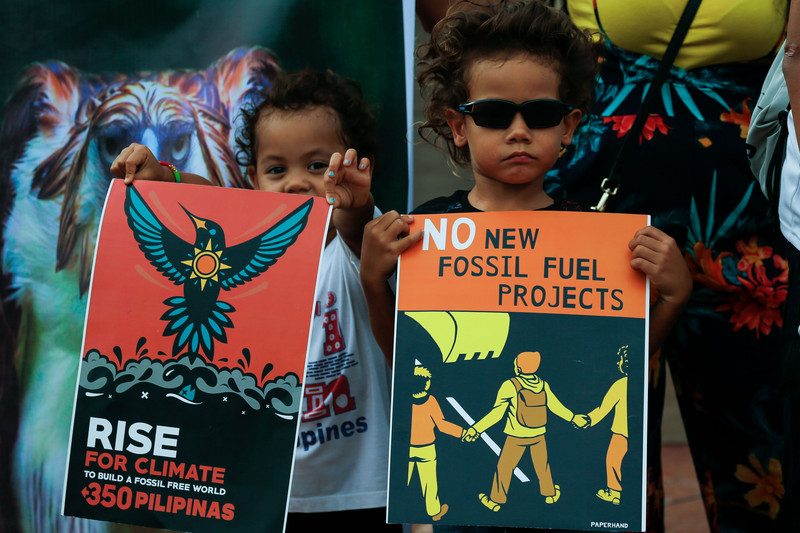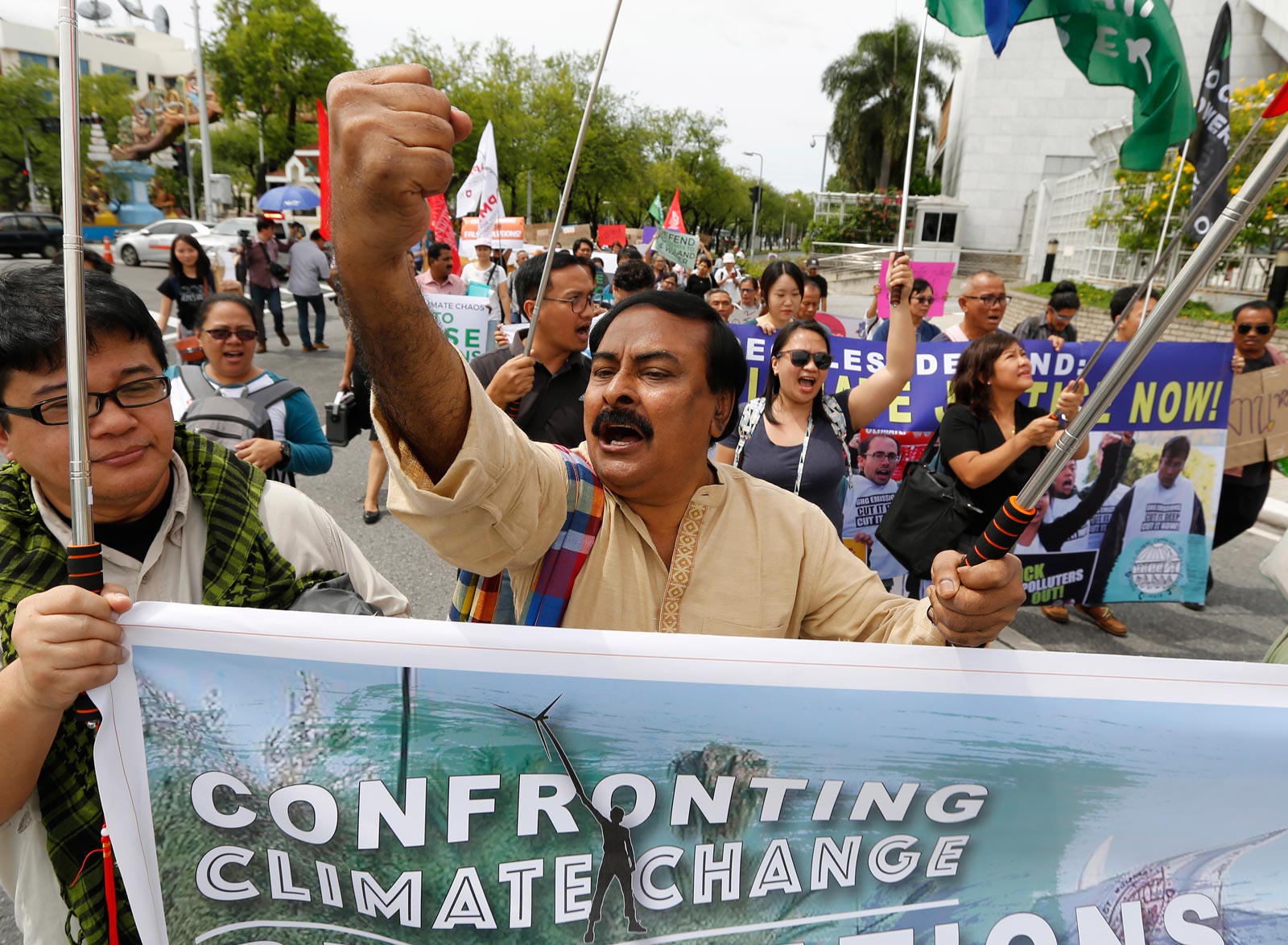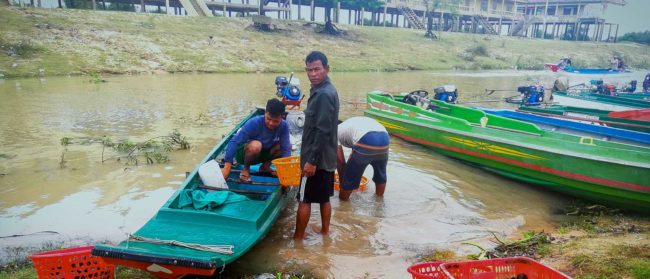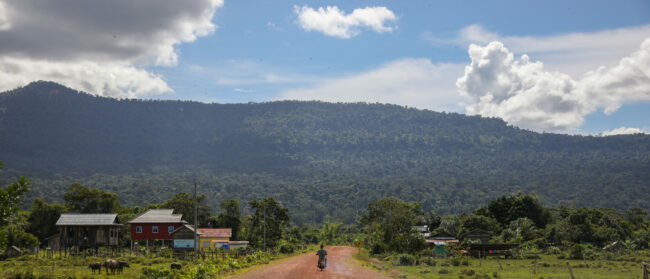From the city halls of Alberta to the streets of Ulaanbaatar, not to mention all across Southeast Asia, climate activists are organising by the millions for the Global Climate Strike planned for September 20.
The student-led action is part of a week of international climate-related events centred on the UN Climate Action Summit, a September 23 meeting of nations to promote the Paris Agreement, a landmark policy platform written in the hopes of reducing global carbon emissions and slowing the rise of the planet’s average temperature. A second Climate Strike will bookend that summit on September 27.
By the time the first strikes materialise, activists in the Philippines will have already been in full swing for more than a week. Despite being named earlier this year by a watchdog group as the deadliest country in the world for environmental activists, the nation is locked in a fierce battle against carbon emitters that climate change watchers say have exacerbated deadly typhoons that have swept the archipelago in recent years.
Greenpeace Philippines campaigner Desiree Llanos Dee told Southeast Asia Globe that climate activists have been organising over the past week in Manila and elsewhere in the lead-up to the global event. To her, climate change seems to be one environmental issue that has galvanised a broad cross-section of society.
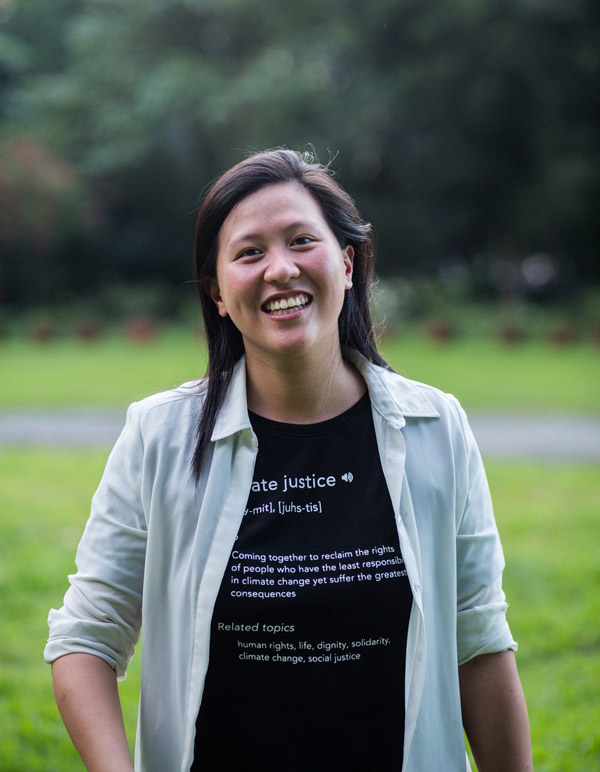
Is the September 20 climate strike generating much interest or potential activity in the Philippines? Has the interest been less than what you hoped for?
I would actually say it’s exceeded my expectations. I saw a few days ago where [student climate activist] Greta Thunberg said she wanted September 20 to be a tipping point. In the Philippines, I think now more than ever, people are realising how important it is to take steps to address this problem.
People understand it – the impacts at least – so well. And I think, in terms of the causes, people are starting to connect the dots more with relating it to the fossil fuel industry and what the government needs to do to address it. Also how to feel less powerless about it, because sometimes it’s so overwhelming.
So I think this week has been very hopeful, especially in the way that you see young people leading this fight for their future. They way they’re standing up, it’s a David and Goliath image, with these young people standing up against such big, traditional and conventional powers. They’re standing because, for them, they have their whole futures to lose if they don’t do this now.
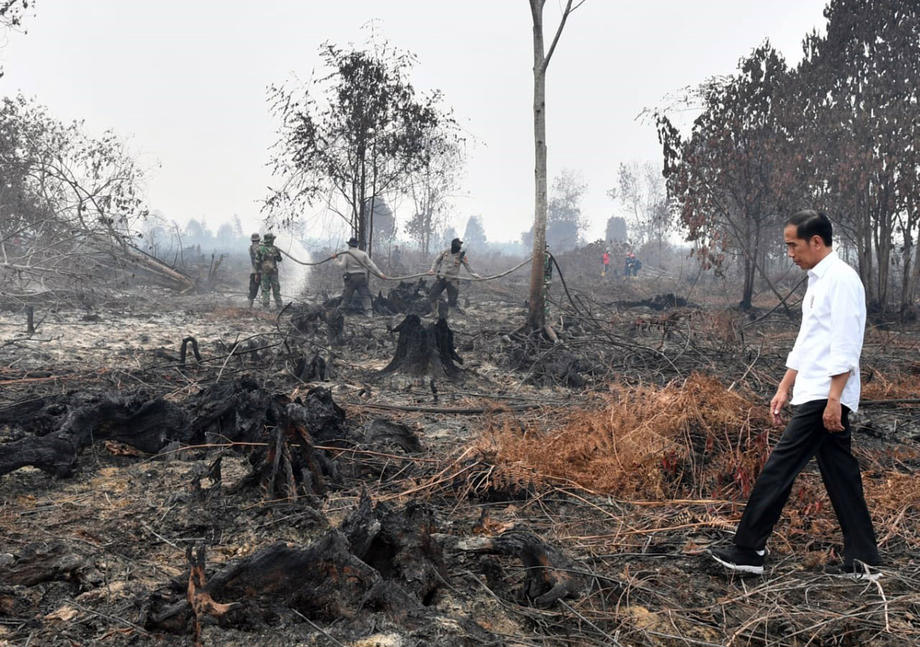
Have there been any obstacles – official, police, legal – placed in front of campaigners trying to organise events for Friday anywhere in the region? Anywhere been particularly helpful?
Climate frames that. Even with the climate litigation cases, you can see how there are so many people around the world doing this kind of work. You can see what brings people together, and it’s what they strive to protect. It tells you a story about who is at risk and who is responsible.
I haven’t seen an official comment on the government on this. But what’s disappointing is how the government in the last months refused to participate in the UN climate conversation. I would just hope that the Philippines as a country, as one of the most vulnerable countries, would have a seat at that conversation, because it’s a conversation that’s very important for us to be in.
From deforestation to ocean plastic pollution, there are many different environmental challenges facing the countries of Southeast Asia. Do you see overlapping themes between those other issues and the work being done to address climate change?
Yeah, I honestly see climate as one of the overarching themes for all of this. Climate affects everything, so we have climate change to frame it. But with the powerlessness that people feel about the topic, we can look at sub-issues like plastics and consumption, forest protection, urban cities, the waste trade and sustainable food. These are subtopics that are much more concrete for people to say, ‘Oh, this how I can contribute and change.’
What would you say to the argument that climate change has been caused by countries that have already, long ago in some cases, developed or modernised economically, and that for Southeast Asia, the demands of curbing climate change could end up curbing fast-growing economies prospects of emerging as industrialised or post-industrialised economies and therefore it the expectations are either unrealistic or unfair?
It’s not just developed versus developing countries, it’s also individuals and corporations. But I definitely believe there is that historical responsibility on the weight of the shoulders of developed countries who’ve come so far and now have so many resources for technology transfer to assist other countries. And as far as funding on this, it’s an obligation in some ways as part of their overseas development systems. The whole call of climate justice is to really reclaim the rights of those who had the least responsibility in the crisis but suffer the grievous consequences. And I think that goes on so many levels, for communities, for government and for our corporations.
I think it’s important to acknowledge historical responsibility, and that’s what this group is doing. Of course everyone can be responsible for climate change in some ways, but there are definitely those who are more responsible and who should have more responsibility in this.
